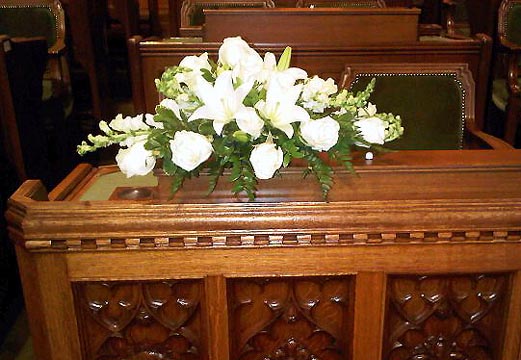Parliament is back after the truncated, post-election session last spring, and the traumatic summer we all experienced. It got going, on a rare, non-partisan note, with a tribute to Jack Layton.
Acting NDP leader Nycole Turmel started things off by reminding the House of Layton’s abiding commitment to democracy. “He wanted to make Parliament an institution Canadians could be proud of,” she said, and invited colleagues to honour the late Opposition Leader’s memory by living up to that aspiration.
Acting Liberal leader Bob Rae and Green Party leader Elizabeth May quoted poet Dylan Thomas, “And Death Shall Have No Dominion” and “Do Not Go Gentle Into That Good Night,” respectively. Rae made a point of emphasizing Jack’s significant and tangible impact as a Toronto city councillor.
Prime Minister Stephen Harper underscored the notion of friendships that transcend political differences, and recognized the courage and dignity of Layton’s widow, Olivia Chow.
Chow responded to all this with obviously sincere gratitude. She made a particular point of recognizing the common bonds of solidarity she feels with other Canadians who are living with cancer, and thanked the prime minister and his wife, not only for making the state funeral possible, but, also, for their personal support.
After the series of speeches, the speaker called for a moment of silence, then most of the members filed out, and it was back to partisan politics as usual.
The substantive debate scheduled for Monday morning was on a very significant piece of legislation, although you will not likely be hearing about it on the evening newscasts. This proposed legislation goes by the title “Bill C-4” and it’s notionally designed to curtail what we have come to call “human smuggling.”
Bill C-4 was drafted in response to two boatloads of Sri Lankan Tamil refugees who came to Canada over the past two years, fleeing civil war-wracked Sri Lanka. The over-heated media coverage of those arrivals-by-sea fed into the current government’s law-and-order agenda. The result is a proposed law that would create a new, “designated” class of refugee claimants, to which special, harsh provisions would apply.
Bill C-4 provides that people seeking refuge in Canada who arrive on boats — which are no doubt, in some cases, owned by unscrupulous operators, out to make a fast buck — will be held in detention for a year and not permitted to apply for permanent status in Canada for five years, even if their refugee claims are accepted.
During the debate, the Liberals’ Francis Scarpaleggia and the NDP’s Don Davies both argued that Bill C-4 will do nothing to prevent the abuses of “human smuggling” and instead punishes the victims. They both pointed out that holding traumatized and frightened men, women and children in detention for a year is hardly likely to deter so-called “smugglers.” As well, both opposition MPs argued that C-4 effectively creates two classes of refugee-claimant, based, essentially, on mode of transport, and it defies certain articles of the Canadian Charter of Rights and a number of international treaties and conventions to which Canada is a signatory.
Of course, for this government, in real-life political terms, evidence demonstrating a need for this legislation is not particularly relevant.
During today’s debate, Conservative MP Stephen Woodworth revealed the bill’s true motivation when he referred to the refugee-claimants this proposed law would target as “queue jumpers.” These folks “cutting in on line” slow the process for “legitimate” refugees who patiently wait their turn, the Conservative MP claimed. The fact that there is no such thing as a “refugee queue” is, apparently, beside the point. And the added fact that the refugee and immigration processes are entirely separate, from both the legal and bureaucratic points of view, does not seem to matter much, either.
What counts — in the world of pure, unvarnished politics — is that Bill C-4 effectively taps into some fairly widespread, if inchoate, discomfort about Canada being flooded with unwanted (and, maybe, dangerous) people from far away places. It is, as the NDP’s Davies put it, a sign of the style of governing we can expect from this Conservative majority.
We’ll be going into this bill and its implications in greater detail, as it makes its way through the legislative process. In the meantime, fasten your seatbelts and get ready for more knee-jerk initiatives, based not on fact or sound legal principles, but on fear and fear alone.
By the time afternoon rolled around, during Question Period, some of the morning’s commitment to civility seemed to return. It was evident that the NDP is not planning to indulge in name-calling and heckling, and the Conservatives seem to be holding back, too.
Of course, when it comes to policy, the government benches are not in a compromising mood. No way. Farmers may have voted to preserve the Canadian Wheat Board, in a recent plebiscite. No matter to the prime minister. As far as he’s concerned, western farmers voted for a “free market” approach when they elected more Conservative MPs. If they don’t like what they’re getting — well, they can wait four years and vote for someone else!



